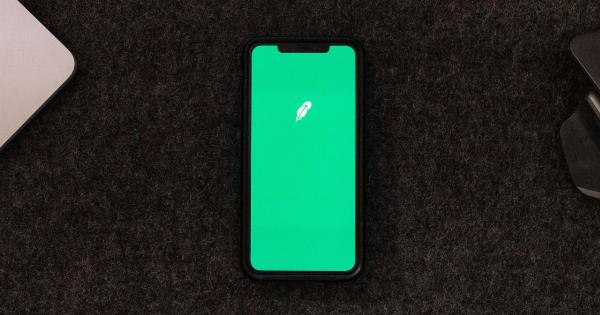Have you ever wondered about your brain’s age? The brain is one of the most important organs in the human body. It controls our thoughts, our movements, and It is one of the most complex organs in the body.
As we age, our brain also undergoes changes that can affect our memory, reasoning, and other cognitive functions. But how do we determine the age of our brain?.
Scientists have come up with tests that can measure the brain’s age and provide a score that reflects cognitive performance.
These tests are designed to evaluate various cognitive abilities, such as memory, attention, perceptual speed, and reasoning. Here are some tests that you can take to determine your brain’s age:.
1. The Memory Test
The memory test is one of the simplest tests that you can take to evaluate your brain’s age. In this test, you will be given a list of items to remember. After a few minutes, you will be asked to recall as many items as you can.
The number of items that you can remember is an indication of your memory capacity. A higher score suggests a younger brain, whereas a lower score suggests an older brain.
2. The Reaction Time Test
The reaction time test evaluates your ability to react quickly to a stimulus. In this test, you will be asked to press a button as quickly as possible when a light flashes on a screen. The time taken to react is an indication of your brain’s age.
A faster reaction time suggests a younger brain, whereas a slower reaction time suggests an older brain.
3. The Perceptual Speed Test
The perceptual speed test evaluates your ability to process information quickly. In this test, you will be shown a series of images, and you will be asked to identify the ones that are repeated.
The time taken to identify the repeated images is an indication of your brain’s age. A faster response time suggests a younger brain, whereas a slower response time suggests an older brain.
4. The Reasoning Test
The reasoning test evaluates your ability to solve problems and make decisions. In this test, you will be given a series of problems to solve, and you will be asked to choose the correct answer.
The number of correct answers is an indication of your brain’s age. A higher score suggests a younger brain, whereas a lower score suggests an older brain.
5. The Executive Function Test
The executive function test evaluates your ability to plan, organize, and manage your time. In this test, you will be given a set of tasks to complete, and you will be asked to complete them in a specific order.
The time taken to complete the tasks is an indication of your brain’s age. A faster completion time suggests a younger brain, whereas a slower completion time suggests an older brain.
6. The Attention Test
The attention test evaluates your ability to focus and concentrate. In this test, you will be shown a series of letters, and you will be asked to identify a specific letter. The time taken to identify the letter is an indication of your brain’s age.
A faster response time suggests a younger brain, whereas a slower response time suggests an older brain.
7. The Language Test
The language test evaluates your ability to communicate effectively. In this test, you will be asked to read a passage and answer questions based on the passage. The number of correct answers is an indication of your brain’s age.
A higher score suggests a younger brain, whereas a lower score suggests an older brain.
8. The Working Memory Test
The working memory test evaluates your ability to hold information in your memory while performing other tasks. In this test, you will be given a series of tasks to complete while remembering a set of numbers.
The time taken to complete the tasks is an indication of your brain’s age. A faster completion time suggests a younger brain, whereas a slower completion time suggests an older brain.
9. The Visual-Spatial Test
The visual-spatial test evaluates your ability to visualize and manipulate objects mentally. In this test, you will be shown a series of shapes, and you will be asked to match them with other shapes.
The time taken to match the shapes is an indication of your brain’s age. A faster response time suggests a younger brain, whereas a slower response time suggests an older brain.
10. The Numerical Test
The numerical test evaluates your ability to understand and process numbers. In this test, you will be given a series of mathematical problems to solve, and you will be asked to choose the correct answer.
The number of correct answers is an indication of your brain’s age. A higher score suggests a younger brain, whereas a lower score suggests an older brain.
Conclusion
After taking these tests, you can calculate your brain age score by adding up all the scores and dividing by the number of tests taken. If your score is higher than your actual age, congratulations! Your brain is younger than your actual age.
If your score is lower than your actual age, don’t fret! There are ways to stimulate and improve your cognitive abilities.
By challenging your brain with new activities and learning new skills, you can improve your cognitive abilities and maintain a younger brain. So go ahead and test your brain’s age today, and remember, it’s never too late to start learning!.





























